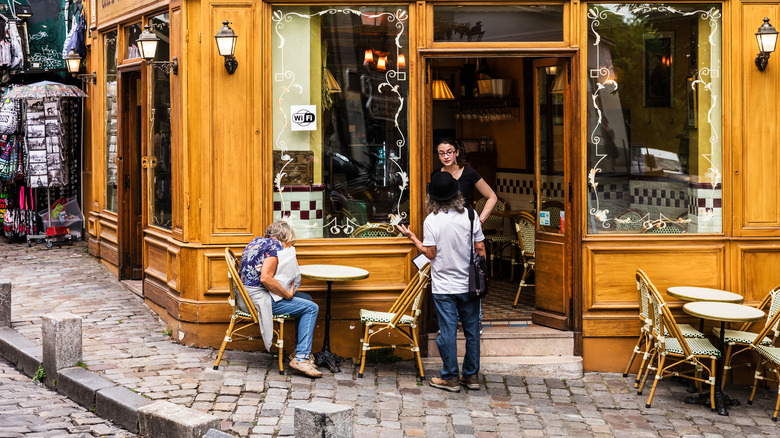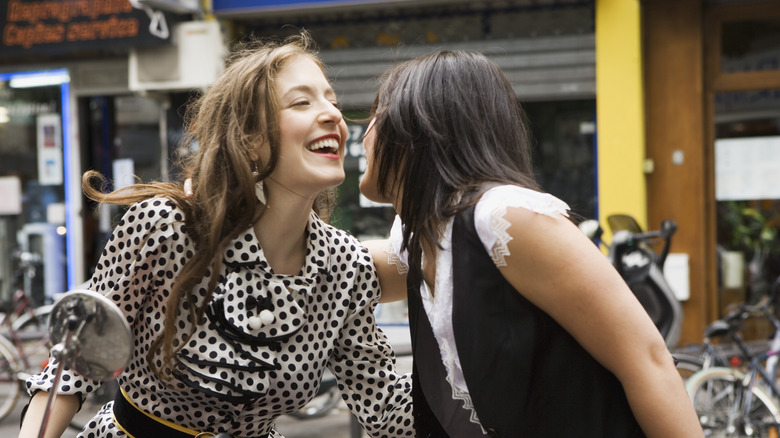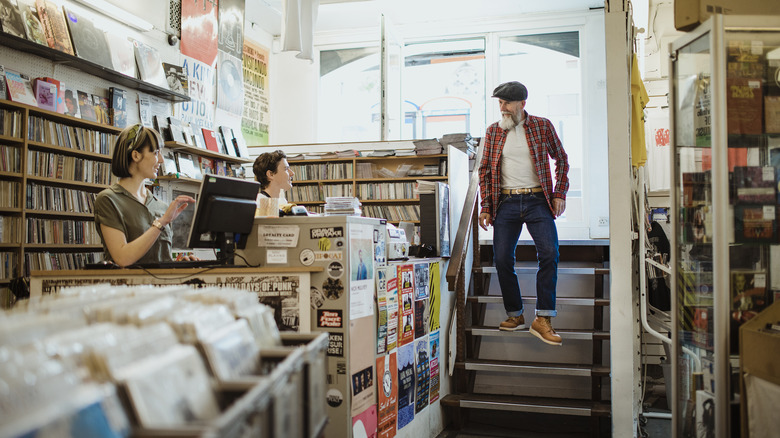Locals In France Hate When Tourists Break This Unspoken Greeting Rule
In the charming streets of France, from the bustling avenues of Paris to the romantic lanes of Provence, lies an unspoken rule that is sacrosanct among the locals: the customary greeting of bonjour. This simple word, meaning "good day," goes beyond mere nicety — it is a fundamental aspect of French social etiquette. Tourists who neglect this customary greeting often find themselves at odds with the local bonjour culture. Understanding and trying to participate in this tradition is crucial for anyone visiting the country.
Saying "bonjour" acknowledges respect and is an essential tool for social interaction in France. Even if you have a thick foreign accent or are an exclusive monolinguist, it is an essential word you must know before your trip to France. This greeting sets the tone for every single conversation and interaction that follows. It signals to the locals that you respect their customs and are making an effort to integrate, even superficially, into their societal norms.
Neglecting to say "bonjour" can be perceived as rude, dismissive, or worse, that you were badly raised (mal élevé). Many French people consider it a basic aspect of human decency to acknowledge someone before launching into a speech or request. Skipping this greeting can make interactions feel blunt or transactional, which goes against the subtleties preferred in French communication. You may object, "but I am not French!" Alas, when in Rome, do as the Romans do. And when in France, you say "bonjour." D'accord?
The importance of saying bonjour
Tourists often miss the mark on this cultural nuance, especially those from cultures where informal or no greetings before a conversation are the norm. In the U.S., it's commonplace to go into a café and order a coffee, sparing the pleasantries without anyone giving it a second thought. However, it is a rule everyone must follow in France, and any oversight can lead to what many might describe as a cold reception from locals, who may respond in kind with terse or minimal interaction. This can leave tourists feeling unwelcome, perplexing them about what they did wrong. It's a common sight in tourist-heavy areas: Visitors walking into establishments or approaching street vendors and diving straight into questions or orders without a preliminary greeting.
The emphasis on greetings can be traced back to the French value of politesse (politeness), which is deeply ingrained in the national identity. Politeness is considered a virtue that lubricates social interactions and maintains harmony. By saying "bonjour," one acknowledges the other's presence, dignity, and worth. This greeting is also expected to be tailored to the time of day, shifting to bonsoir (good evening) in the later hours. In response to this cultural faux pas, some French business owners of small cafés or shops in high-tourist areas have put up signs instructing customers to say "bonjour" and "merci" (thank you) during the transaction. Some even have signs with different menus and prices for those who don't say "bonjour"!
How tourists can embrace this rule
For tourists who don't want to be seen as a mal élevé, starting every interaction in France with an earnest "bonjour" is the bare minimum. It shows an openness to learning about French culture and respecting local customs, leaving a positive impression. Many language guides, travel blogs, and preparatory materials highlight the importance of greetings in French culture — bonjour indicates entering someone's territory, so to speak. Tourists who take the time to learn these basics will find their journeys more culturally meaningful and their interactions less awkward. If you don't speak the language, don't worry, bonjour is all you need. By now, it should be clear that bonjour is arguably the most important word in the French language.
In what situations should one say "bonjour"? All of them (almost). When you arrive at a restaurant or bakery (and when you order from the staff), enter a clothing store, board a bus or train, pay a visit at the doctor's office, before asking a stranger a question, walk into an elevator with others, and the list goes on. Don't say "bonjour" to every passerby on the street, and don't go overboard. But if you feel like a bonjour is in order, it probably is. Maybe during your French travels, bonjour will eventually become a social reflex for you as much as it is for the locals, and maybe you can bring some of that bonjour culture back home with you.


